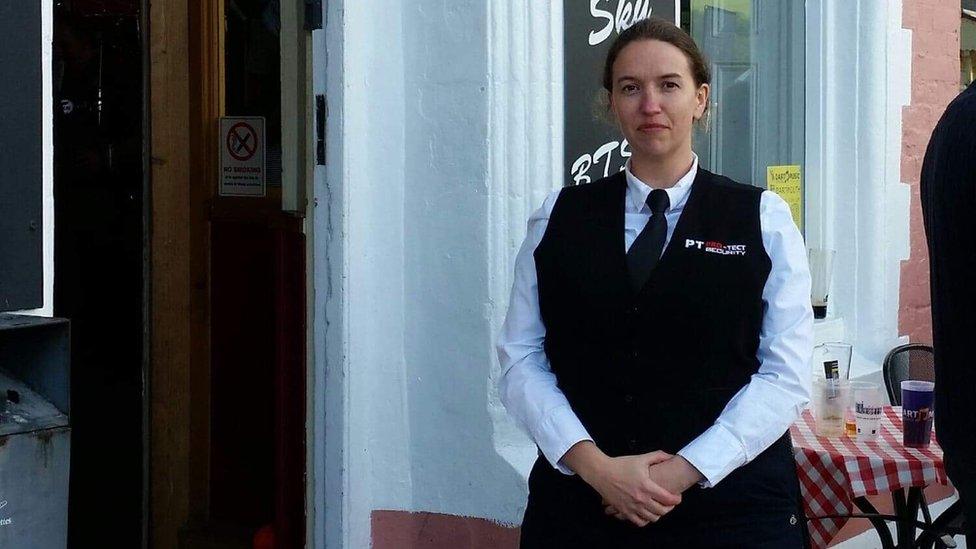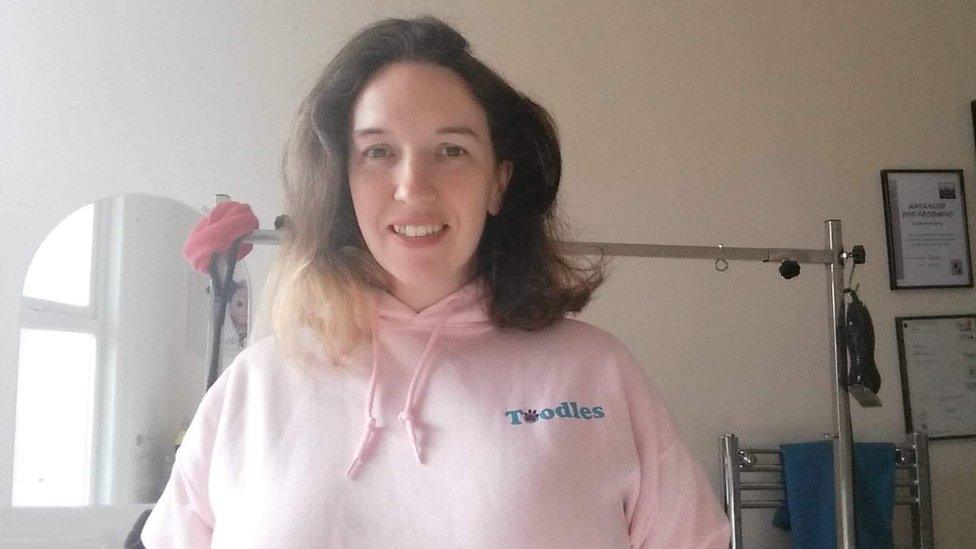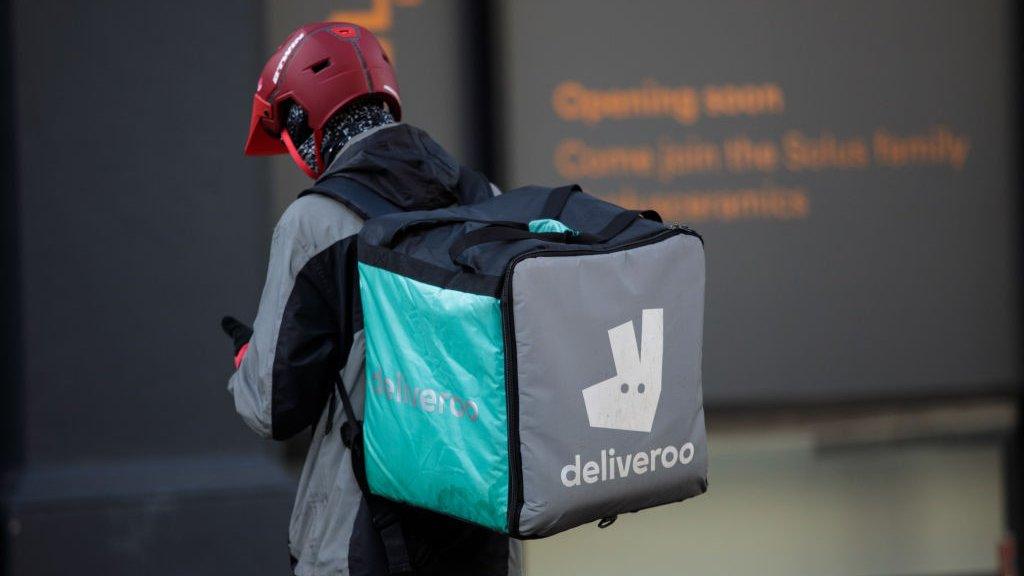'I feel refreshed': Brits embrace multiple careers
- Published

Sam Gray working in security - one of her many jobs
More than 320,500 self-employed people in Britain are working two or more jobs, new analysis suggests.
A study by the Association of Independent Professionals and the Self-Employed (IPSE) - seen by 5 Live's Wake Up To Money - shows that 7% have launched an additional business.
Some call it a portfolio career or a multi-hyphenate career.
One term that seems to be sticking is "slashie", as in: "I am a chef/blogger/dog walker."
'A positive choice'
Sam Gray is a so-called "slashie", although she dislikes that term and would rather be known as a "Jack of all trades". She's a former teacher living in Torquay, and currently works five different jobs.
In addition to her own dog-grooming business, Toodles, Sam works as a private tutor, teaches crochet and sells patterns, works security for nightclubs and bars and works two 12-hour night shifts at a local arcade.
While she initially took on multiple roles by necessity, she says she now enjoys this way of working.
"As a full-time teacher your job never ends. There is this constant feeling that you could and should be doing more. But with lots of different jobs I have to switch off, I have to stop thinking about what I was doing, because I am getting paid to do something else.

Sam Gray runs a dog-grooming business, alongside other roles
"It is a positive choice. If I just worked in a dog grooming salon all day I think I'd probably go a little bit mad, dogs aren't great for conversation. And I love teaching, so tutoring really fills that gap for me."
'Multifaceted by nature'
Working more than one job because money is tight is not new, but many "slashies" appear to be doing so for more personal, creative reasons.
It's also a bit different to a side-hustle, which is where someone turns their hobby outside their main job into a money-making venture. Many are successful enough to be able to leave their full-time employment to become a "slashie".
Research carried out by Henley Business School found that one in four workers are running at least one business alongside their main careers.
Chloé Jepps, deputy head of research at IPSE, says that for most people it is a choice, not a necessity. "It's to pursue a passion, try something new and get some extra income while doing something they love," she explains.
But it's also a way to trial a new business: "You can test a new idea without leaping straight into it and try things without taking the full risk."
Emma Gannon believes this way of working simply suits many people better, by giving them outlets for different interests. She's a journalist, podcaster and author of The Multi-Hyphen Method, which provides advice on how to manage multiple careers.
She says: "In America, it was always cool to have another role on the side, but in the UK there's a stigma around being a 'Jack of all trades'.

Author Emma Gannon helps 'slashies' navigate their working lives
"From school and university, we're told to pick one thing and become an expert, but the job-for-life isn't possible anymore, even if you want that.
"Humans are multifaceted by nature, we have many interests and now we're feeling braver about embracing that."
Emma is confident that rather than "working in a way that suits the Victorian era, working at a machine for fixed hours", many more will choose to have a concurrent careers.
But she says these "slashie" pioneers are at risk of burnout.
"The flip side of enjoying your job can be that you end up working 24 hours a day. There's an increasing trend of merging your job and your life, and if you've got a few different gigs then even more so.
"There isn't enough support for people working this way. The admin side of things can be quite intense, more so if you're running more than one business."
For "slashie" Sam Gray, a change is simply as good as a rest.
"I feel refreshed by how I work now," she says.
"I don't do anything long enough to get bored with it, everything just feels new."

- Published5 November 2018

- Published30 July 2018
